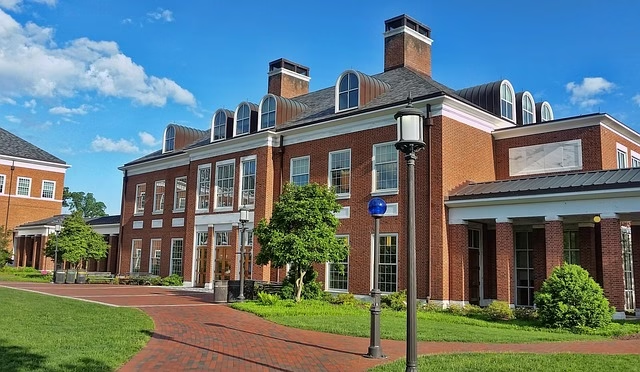The University of Metaphysical Sciences Lawsuit has garnered attention for its unique approach to education, focusing on spiritual and holistic studies. However, recent events have cast a shadow over this institution. A lawsuit has emerged, bringing both intrigue and concern within the community. Students, alumni, and prospective learners are left wondering what this means for their educational journey. In this post, we will dive deep into the details surrounding the university of metaphysical sciences lawsuit—unpacking what happened and how it may affect those connected to the university. Join us as we explore the implications of these legal challenges in an ever-evolving academic landscape.
The Lawsuit: What Happened?
The University of Metaphysical Sciences lawsuit emerged as a shocking event for many. It began when former students raised concerns about the institution’s accreditation and practices.
Allegations included misleading information regarding course content and job prospects after graduation. Many felt that they were misled into believing their degrees would hold significant value in the job market.
As details unfolded, it became clear that tensions had been brewing between dissatisfied students and university officials. A series of complaints triggered legal action, seeking clarity on the university’s operations.
The case garnered media attention, drawing interest from both supporters and critics. As discussions continued, questions surrounding educational integrity took center stage. This situation not only impacted those directly involved but also sparked broader conversations within the realm of alternative education institutions.
Legal Issues Raised in the Lawsuit
The lawsuit against the University of Metaphysical Sciences revolves around several complex legal issues. Central to the case are allegations of misrepresentation and breaches of contract. Plaintiffs argue that the university failed to deliver on its promises regarding educational standards.
Additionally, there are claims related to consumer protection laws. Students assert that they were not adequately informed about key aspects, such as course accreditation and job placement rates.
Another significant point involves financial transparency. Accusations include misleading statements about tuition fees and associated costs, raising questions about ethical practices in higher education.
These legal challenges highlight broader concerns within alternative education institutions. The outcome may influence how similar organizations manage their operations and communications with prospective students moving forward.
Response from University of Metaphysical Sciences
The University of Metaphysical Sciences has made a public statement addressing the ongoing lawsuit. They express confidence in their practices and policies, emphasizing their commitment to student education and well-being.
University officials claim that they are fully cooperating with legal proceedings. They believe the allegations do not reflect the true nature of their institution or its mission.
In response to concerns raised by students and alumni, the university is actively working on enhancing transparency. They aim to provide clearer communication regarding academic standards and operational procedures.
Additionally, UMS has initiated forums for discussion. These platforms allow stakeholders to voice opinions, ask questions, and gain insights directly from university representatives.
This approach aims to reassure current students while fostering a supportive community during this challenging time.
Impact on Students and Alumni
The university of metaphysical sciences lawsuit has left many students and alumni feeling uncertain about their educational choices. Some worry about the value of their degrees, questioning whether potential employers will recognize their qualifications.
Current students are navigating a challenging landscape as they try to focus on their studies amidst the legal turmoil. The heightened scrutiny can create anxiety, impacting academic performance and overall well-being.
Alumni face unique challenges too. Many have built careers based on the credentials obtained from the university, but now fear that this could be undermined by negative perceptions stemming from the lawsuit.
Support networks are vital during such times. Students and alumni are coming together to share experiences and provide assistance to one another. This solidarity helps foster resilience in a difficult situation, paving new paths for personal growth and community strength amid adversity.
Lessons Learned and Moving Forward
The situation surrounding the university of metaphysical sciences lawsuit serves as a pivotal learning moment for all involved. It highlights the importance of transparency and clear communication within educational institutions.
Students and faculty alike should feel empowered to voice concerns without fear of repercussions. This case underscores the need for robust governance structures that prioritize ethical practices over profit.
Moving forward, it’s crucial to foster an environment where constructive feedback is welcomed. Engaging with stakeholders can lead to positive changes that benefit everyone in the community.
Institutions must also evaluate their policies regularly to ensure they remain relevant and effective. By embracing adaptability, schools can better serve their students’ needs in an ever-evolving educational landscape.
Through reflection and proactive measures, universities can emerge stronger from challenges like this one, ensuring a more supportive atmosphere for future generations.
Conclusion
The University of Metaphysical Sciences has been a unique institution, offering students insights into various metaphysical practices and philosophies. However, the recent lawsuit has cast a shadow over its reputation. Understanding the legal issues raised provides clarity on the challenges faced by such institutions in today’s educational landscape.
The response from the university indicates an intent to address concerns while striving to maintain its core mission. It’s essential for current and prospective students to stay informed about these developments as they may influence their educational journey.
For alumni, this situation serves as a reminder of the importance of institutional integrity and transparency. As the university navigates through this turbulent period, it stands at a crossroads that could ultimately redefine its future.
As we observe how this case unfolds, it’s apparent that there are valuable lessons for both educators and learners alike. Adaptability and open communication will be vital moving forward in ensuring trust remains strong within academic communities focused on metaphysics and beyond.

